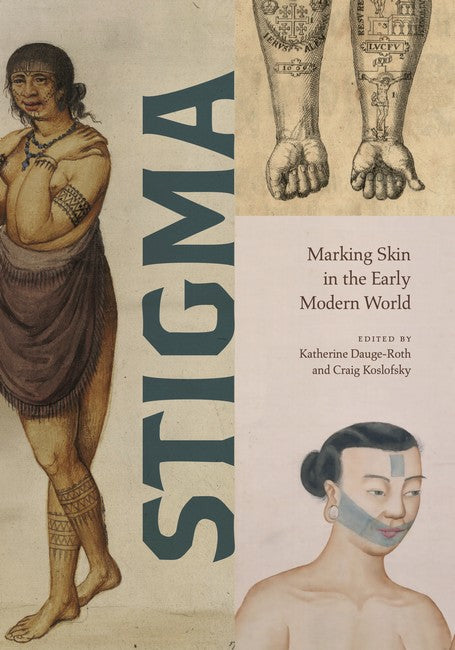Katherine Dauge-Roth is Associate Professor of Romance Languages and Literatures at Bowdoin College in Brunswick, Maine. She is the author of Signing the Body: Marks on Skin in Early Modern France. Craig Koslofsky is Professor of History and Germanic Languages and Literatures at the University of Illinois, Urbana-Champaign. He is the author of Evening's Empire: A History of the Night in Early Modern Europe and The Reformation of the Dead: Death and Ritual in Early Modern Germany, 1450-1700, and the coeditor of A German Barber-Surgeon in the Atlantic Slave Trade: The Seventeenth-Century Journal of Johann Peter Oettinger.
Request Academic Copy
Please copy the ISBN for submitting review copy form
Description
List of Illustrations Acknowledgements Introduction Marking Skin: A Cutaneous Collection Katherine Dauge-Roth and Craig Koslofsky Part I: Marked Encounters in America, Asia, and Africa 1. "Pownced, Pricked, or Paynted": English Ideas of Tattooing as Indigenous Literacy Mairin Odle 2. Indigenous Taiwanese Skin Marking in Early Modern European and Chinese Eyes Xiao Chen 3. Following the Trail of the Slave Trade: Branding, Skin, and Commodification Katrina H. B. Keefer and Matthew S. Hopper Part II: Marks of Faith 4. Jerusalem Under the Skin: The History of Jerusalem Pilgrimage Tattoos Mordechay Lewy 5. Stigmata and the Mind-Body Connection Allison Stedman 6. The Invisible Mark: Representing Baptism in Early Modern French Dramaturgy Ana Fonseca Conboy 7. Rabies and Relics: Cutaneous Marks and Popular Healing in Early Modern Europe Katherine Dauge-Roth Part III: Standing Out: Marks of Honor, Shame, and Beauty 8. Skin Narratives: Speaking About Wounds and Scars in Shakespeare's Coriolanus Nicole Nyffenegger 9. Branding on the Face in Early Modern Europe Craig Koslofsky 10. Mouches Volantes: The Enigma of Paste-On Beauty Marks in Seventeenth-Century France Claire Goldstein Afterword Cultural Inscriptions: Body Marking After 1800 Peter S. Erickson List of Contributors Index
"The authors in this volume focus critically on postmodern analyses of race, class, and gender for early modern studies and the history of the body. As a result, Stigma highlights a fresh history of skin that does not center solely on racial identity of the time but instead illuminates the changing, rather than fixed, understandings of skin during the early modern era." -Andrew Kettler, author of The Smell of Slavery: Olfactory Racism and the Atlantic World

